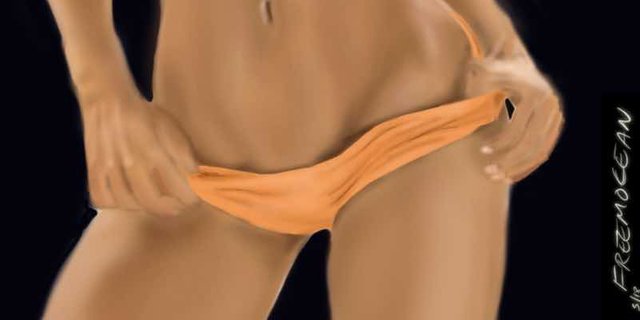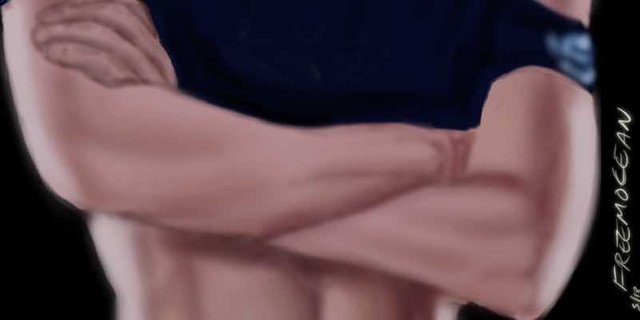Healing Relationships - part 3 - Values
So just be nice and and everything will be ok right? Well not quite, as you know, us humans are a complicated bunch and while emotion is simple, that which creates and sustains it is not simple at all. It is not even easy to examine it, without falling into our own filters and knee jerk reactions.
How to heal what was never real?
Conflict resolution begins with finding common interests. Arbitrators (neutral parties trying to help reach consensus) help opponents to see if some mutual benefits can be gained by cooperating in those areas. First to build some trust, then to reward the creation of synergies, rather than enemies.
If we all live in one world with almost identical DNA, love our children and are concerned for their futures, where do all these areas of conflict emerge from and why do they create so much fear, aggression and waste?
If the differences we see are not to be found in the natural world that we all share, are they all synthetic creations that we have laid on top of the natural world? As an intelligent species, why would we do that, and what might be better?
Biology Moves
All organisms move towards that which nourishes and nurtures and away from that which threatens or harms.
Even fungi demonstrates the ability to learn from reward and punishment.
This organic visceral, expansion and contraction flows though all biological models. It is the basis of all our emotions.
Communication enables organisms, the organisation of organisms to live in communities. To delegate and specialise for increased security and abundance. They learn to move as one, for the good of the whole, but does this reward individualism? Well that depends on what the culture finds to be of value and of threat, as we know this is always changing, but what is it that changes, reality or opinion. What allows change, fresh experiences or repetition of old stories?
Story Time
Some stories are very helpful and some are not, does the quality of the emotions used to anchor the stories determine both, how upset we become, and how easily we can up-date or release them?
Do stories come to effect the way we move, what we choose and even what we can see as choices? Do stories not only direct our focus, but effect our ability to shift or maintain it.
Language - gauging and engaging
Humans form complex languages as a convenient way of sharing ideas, teaching and reaching agreement. The conventions of language are a form of short cuts and symbols that represent real things and situations. They can also be arranged to present possibilities that are not real yet, and may or may not ever be real. Stories can be formed to both increase the chances of or to prevent certain situations from ever happening.
What gives weight to language is the ability to generate or share an emotional response in others. The stronger the emotion the less repetitions are required to "cement" the idea in memory. This is because Emotion is an event that happens in the body and can be sensed by our cells as an actual experience to match the word pictures forming in our minds.
 images like this are designed to move emotion, they might create a powerful response by promising something but may actually leave FOMO or the uneasiness of missing out. This is not good or bad, but we do need to be aware of the less obvious messages we are bombarded with. (it was fun to paint :)
images like this are designed to move emotion, they might create a powerful response by promising something but may actually leave FOMO or the uneasiness of missing out. This is not good or bad, but we do need to be aware of the less obvious messages we are bombarded with. (it was fun to paint :)
Creating Value
In part 2 of this series I asked the question, " how can we adapt to our conditions without becoming “conditioned” and is that even possible?
I hope that you can see that fear/guilt/shame and anger based emotional conditioning can override education that is based upon the acquisition and testing of skills in a playful environment.
We use negative emotions to set safe boundaries, such as scolding a child for leaving the school grounds. This is entirely understandable, but how often does embodied and irrational fear itself, bring the greatest danger? How often do we learn that from those trying to keep us safe? Is that because the only people studying this are either in counselling or in sales?
What determines the value of a thing is its emotional impact on the lives of people. Not its actual impact but its perceived impact. If we are using concepts, substances or material things to cover up deeper feelings of shame, anxiety, guilt or anger, there is no limit to how much energy we will spend on them. All that energy that could have gone into building real skills and talents or just playing nicely and enjoying healthy company.
A person may believe that having a sports car or lots of money is going to make them more powerful, respected and attractive, while it certainly may be fun, it will not actually make him anything other than dependant. Another may believe they will be more valued and desirable after cosmetic surgery, while that may be true to an extent, what comes next when youth is so fleeting?
These are obvious and stereo-typical examples, yet you see variations of the theme repeated over and over though history, like as a species we are trying to process the same riddle.
Re-capping
Emotion is what gives value to both concepts and things. The more insecure we feel, the more we will try to cover that up by attaching to concepts or "things". The more attached we are to concepts and things the more predictable and programmable we become, the more of our energy will flow towards them and away from our own biology and our own creations.
The great game of life is happening on the level of our emotions, below and far more powerful than our intelligence or ability to reason. Emotion controls our behaviour and determine how others respond to us.
Our emotional programming is created and held in place by the stories that we believed.
They are anchored in our limbic system or in simple terms, the automated part of our nervous systems.
Opinions that when challenged, do not make us upset are healthy and normal. (flexible ideas as opposed to rigid beliefs)
Opinions that we have become personally attached to, that we find empowering on a personal level - that we are using to cover an insecurity - these interupt the possibility of relating to others without trying to control them. They limit and twist playfulness and reduce the possibility of coming to understand what is really happening.
If the things we value cause us to become up-set, or to upset others, how valuable are they really?
In part 4 we will look more at how to remain emotionally responsive and how to recover quickly when we do become "up-set".

I really need part 4 article. Because its very important for all to overcome from upset situations. Hope you will post it soon.
Have you seen that Eos prices are increasing now.
Thanks for the post.
EOS prices will probably be all over the place, my plan is to hold for many years and sell some only if I need money or if the price spikes vertical, like last time.
Was part 3 readable? - I re wrote it many times but do not feel that it had the same flow as the first 2. I will try to post part 4 today.
The practice is always the same for me, first set aside my opinion or belief, relax non essential tension, then pay attention to the person I am with. this is caring. Obviously if your lucky enough to know someone gentle and non manipulative, great to practice with them first. Can save hiring a counsellor lol..
Thank you for your comment, so glad that you take the time :)
You said images of this kind are designed to move emotion. Can you elaborate how it works and all please?
Beauty is different for all of us, as is that which is revolting or abhorrent.
We no longer take much of anything apart from the air we breathe directly from nature.
We trade with other humans for what we require to live and work, and what we require to change the way we are feeling.
To increase the value of what we have to offer we need those things to have a more powerful emotional response. The more they can alter a persons "state" the more valuable they are perceived to be.
To have an emotional reaction, we must take messages personally, or they will have little influence. So those who have goods and ideas to sell, must somehow reach us on the personal level, they must stimulate our fears and desires.
I painted this image because it stimulated my desire, but by the time I completed it, not so much. I became more about a game of representing tones and shapes without losing their impact.
Automotive art - Food packaging - Clothing even architecture is all designed to appeal to us personally and evoke an emotional response.
Emotions based in fear - may provoke an automatic response, bypassing our ability to make a rational choice or even to take an action that is in our own best interest.
Desire is Fear of missing out - it is not the same as healthy passion which comes more from giving without strings.
Much of the noise our cultures produce contains strings and is designed to control rather than to offer gently and honestly.
The tools to navigate this world and enjoy the richness of contrast without becoming ensnared are found not in our minds so much as in our senses.
Our minds can only contain concepts, and memories, but memories are not sensations, they are ghosts without texture. Sensation is the only way to interact with reality directly.
Is this helpful?
Yes, i agree with you.
To listen to the audio version of this article click on the play image.

Brought to you by @tts. If you find it useful please consider upvoting this reply.